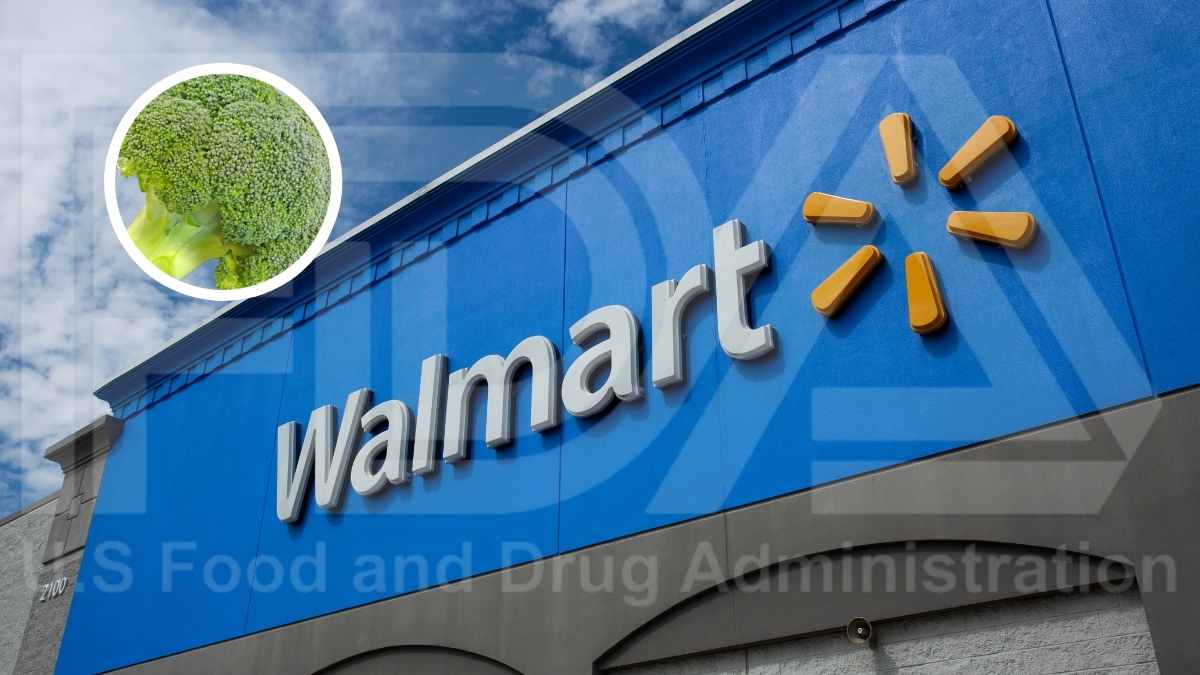Walmart has recalled Marketside broccoli florets after a possible Listeria monocytogenes contamination was detected. This bacterium, known to cause serious foodborne illness, prompted Braga Fresh, the supplier of the broccoli, to initiate a voluntary recall. The affected product comes in 12-ounce bags labeled as washed and ready-to-eat, with a best-before date of December 10, 2024. These details make it easier for consumers to identify potentially contaminated product.
Key identifiers include the UPC code 6 81131 32884 5 located on the back of the bag and the lot code BFFG327A6 printed on the front. Both of these pieces of information are crucial for consumers and regulators to accurately track affected lots. FDA’s decision to make these details public reflects the agency’s commitment to transparency in food safety incidents.
Listeria outbreaks in prepackaged foods are becoming increasingly common due to complex supply chains and centralized processing methods. This recall highlights the critical role of surveillance systems in detecting and treating potential contaminations before they cause widespread harm.
States affected by Walmart broccoli recall
The recall affects 20 states, covering a broad geographic area of the United States. The affected states are as follows
- Western Region: Alaska, California, Nevada, Oregon, Washington.
- Midwest Region: Illinois, Indiana, Michigan, Montana, Wyoming
- Southern Region: Arkansas, Kentucky, Louisiana, Oklahoma, Texas.
- Southwest Region: Arizona, Colorado, Idaho, Utah.
- Eastern Region: Ohio
These states were chosen based on distribution data from Walmart’s logistics network. Given the scale of Walmart’s operations, the recall underscores how interconnected the food supply chain is, where a single contaminated batch can affect millions of consumers in multiple states.
The broad scope also indicates that a significant volume of broccoli florets were distributed, raising questions about how contamination could have occurred during harvesting, washing, packaging or transportation.
Health risks associated with listeria
Listeria is a particularly dangerous bacterium because of its resistance. It thrives in cold environments, which makes products stored in refrigerators and freezers particularly susceptible. This characteristic sets it apart from many other foodborne pathogens, which are usually neutralized in cold storage.
For high-risk populations, such as pregnant women, newborns, older adults and people with weakened immune systems, listeria can cause serious complications. Pregnant women, for example, are 10 times more likely to contract listeriosis than the general population. Infections during pregnancy can have devastating consequences, such as miscarriage, stillbirth or premature delivery. For others, symptoms include
- Fever and chills
- Muscle aches
- Stiff neck
- Nausea or diarrhea
Although healthy people may experience mild symptoms, listeria poses a potentially life-threatening risk in vulnerable populations. According to the CDC, about 1,600 cases of listeriosis are reported in the U.S. each year, with about 260 fatalities.
Recommendations for consumers
Consumers who suspect they have purchased affected broccoli should avoid consuming it. The safest course of action is to dispose of the product immediately. Alternatively, affected customers can return the product to Walmart for a full refund. Although the product is past its expiration date, the recall emphasizes that many customers may have frozen the broccoli for future use.
Braga Fresh has established a consumer hotline at 877-456-7445 and encourages customers to email inquiries to WeCare@bragafresh.com. The availability of these resources ensures that consumers can receive immediate guidance on how to handle the situation safely.
For those concerned about potential exposure, fully cooking broccoli at temperatures above 165°F can eliminate listeria. However, both FDA and Walmart recommend against this risk and urge consumers to discard the product.
Company response and ongoing investigations
Braga Fresh and Walmart are actively investigating the source of the contamination. Initial reports suggest that random sampling by the Texas Department of Health identified the presence of listeria, prompting the product recall. Although no illness has been reported, the early detection underscores the importance of statewide food safety testing.
The recall also highlights broader issues in food production, such as sanitary practices at facilities and oversight of suppliers. Walmart has stated, “The health and safety of our customers is always our top priority. We are working closely with our supplier to address this issue and ensure it does not happen again.”
The company has put corrective actions in place, including revising its supply chain protocols and increasing quality controls at distribution centers.
Food safety trends and broader context
The Walmart recall is part of a growing trend of food safety alerts. In the last year alone, several high-profile recalls have made headlines:
- Frozen waffles and pancakes recall: TreeHouse Foods extended a recall due to listeria concerns through the end of 2024.
- Cheese contamination: Savencia Cheese USA recalled soft cheeses from shelves after contamination fears surfaced.
- Deli Meats closure: Boar’s Head temporarily closed a manufacturing plant linked to unsanitary conditions that led to a listeria outbreak.
These incidents highlight the systemic vulnerability of the food chain. With centralized production sites and globalized sourcing, a single case of contamination can have far-reaching consequences. This underscores the need for robust safety protocols and continuous vigilance to prevent outbreaks.
Consumers are advised to remain vigilant and regularly consult food recalls. Tools such as FDA’s recall database provide up-to-date information on affected products. By taking proactive steps, individuals can protect themselves and their families from potentially harmful contaminants.
For more information, visit FDA’s food recalls page.

